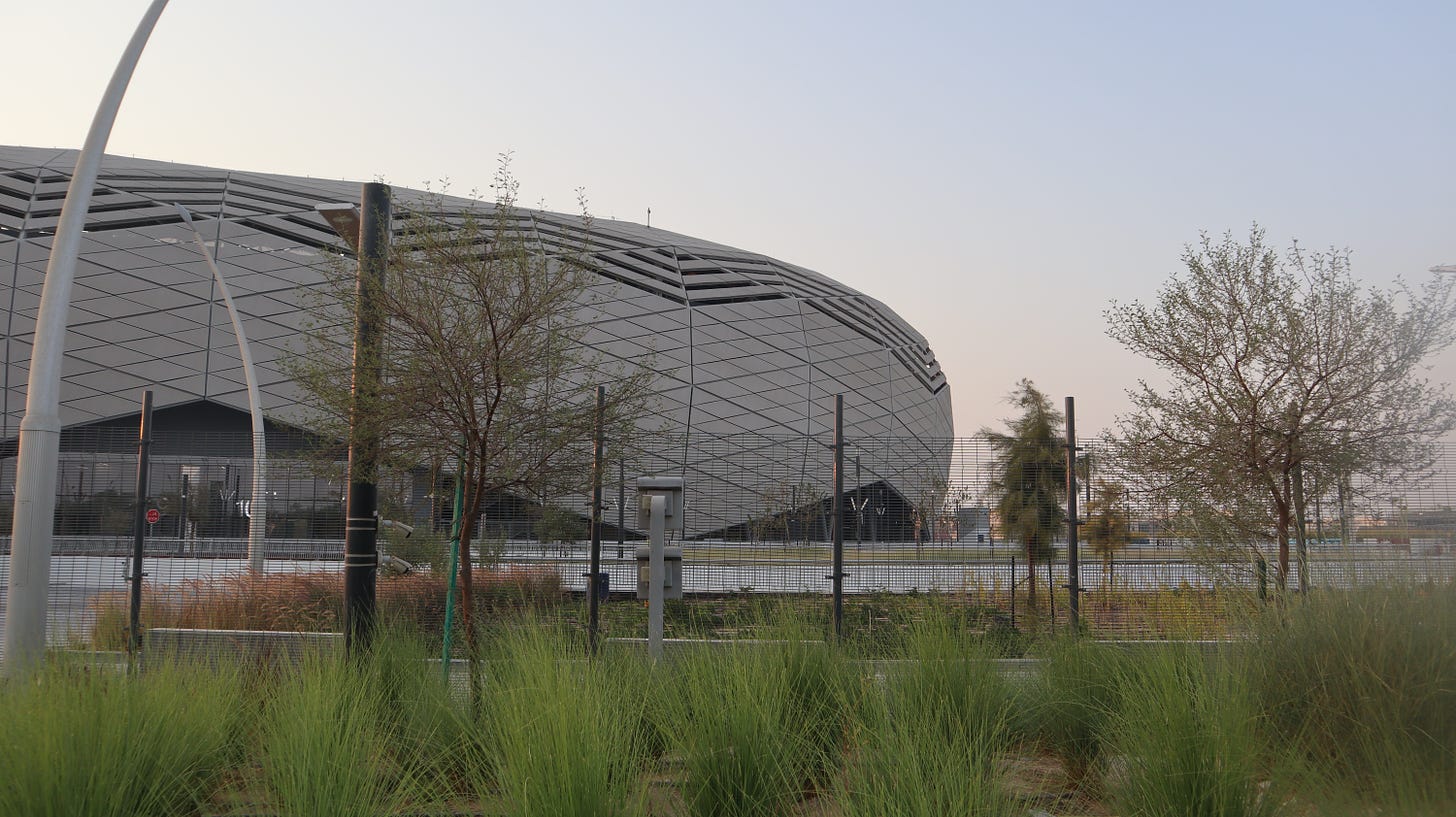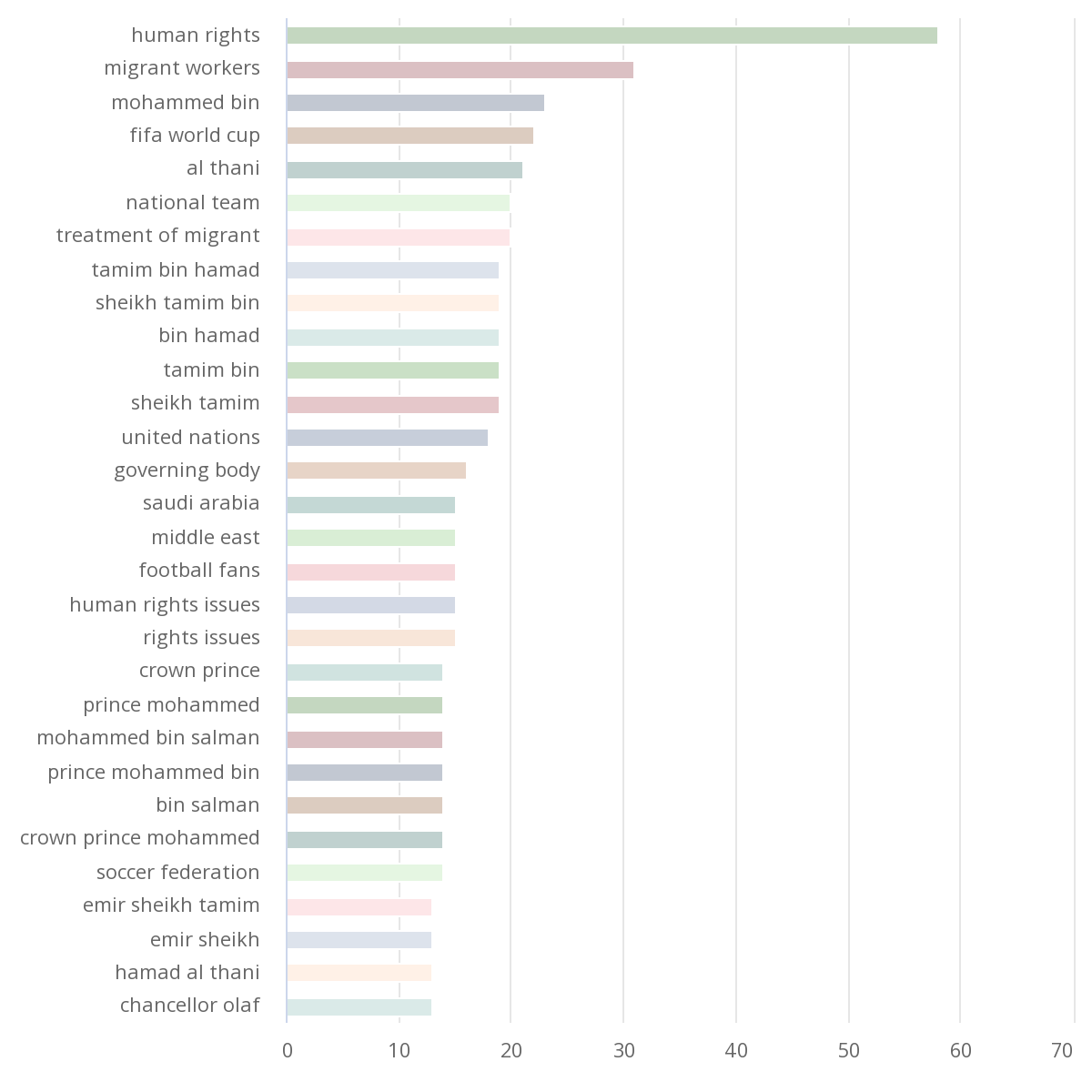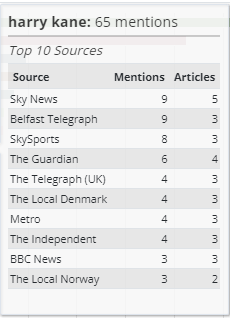Menu

For many years the middle eastern nation of Qatar has cultivated its assets, outside of the oil industry, in order to gain support and attention from the global community. Qatar’s use of soft power, in the form of sports diplomacy, is the one of the main drivers of their foreign policy.
Sports diplomacy is used by countries to brighten the image of the nation, in hopes that other states and individuals will make a positive connection between the sports teams/events and the country in question. Qatar has invested over 220 billion dollars so far in the upcoming World Cup. In 2011, the Emir of Qatar used “Qatar Sports Investments” to purchase the famous French team, Paris Saint Germain (PSG).
The goal of these big moves has been to promote a more tourist-centric image of Qatar, and the World Cup is a big step in that direction. Officials believe that the sports sector will play a larger role in Qatar’s foreign policy, especially with the potential global shift away from gas and oil.
As the World Cup approaches, let’s take a look at the most popular narratives surrounding it in the U.S and European Media modules.

The terms “treatment of migrants” and “migrant workers” are huge narratives beneath the approaching World Cup. Over the last 30 days, 31 unique sources have amplified the term “migrant workers” and the phrase has garnered 92 mentions. Expats make up more than 90 percent of Qatar’s population, and the treatment and working conditions for these migrants has been at the forefront of the media’s headlines.
Since the announcement of the 2022 world cup, 6500 migrant workers have died in Qatar. Although most deaths aren’t due to the construction, many have been linked to it. Multiple human rights organizations have raised concerns over the working and living conditions of these expats. Denmark, who is competing in November, has announced that their jerseys will not feature any logos or flags, in protest of the migrants treatment.
Other terms and phrases that are worth noting are “crown prince” and “Prince Muhammed Bin Salman.” These terms are of course refer to Muhammed Bin Salman, who is the crown prince of Saudi Arabia. Qatar’s relationship with Saudi has been tumultuous throughout the last decade. In 2021, after the three year boycott of Qatar by four other middle eastern countries, Prince Salman visited Qatar and some of the stadiums that would be used for the World Cup. His support of the tournament has been noted by U.S media outlets and shows signs of a strengthening alliance between the two states.
The phrase drew 45 mentions across 10 sources on our U.S media module, and a majority were smaller sources. This is most likely because the “human rights” and “migrant workers” narrative is being oversaturated in mainstream media.
The European media’s response mirrored the U.S module in virtually every aspect, and did not produce very many variations of U.S. narrative trends. The most prominent variation was the mention of English soccer player, Harry Kane.

Two weeks ago, Harry Kane, who plays for the England national team, announced that he would be wearing a rainbow armband in support for the LGBTQ+ community. The armband is sponsored by the OneLove campaign. The significance of the armband is to show support in a country where same sex relationships are criminalized.
Harry Kane will not be the only team captain wearing the patch, as the movement originally started in the Netherlands. As you can see in the table above, many mainstream European outlets have picked up this story, something that the U.S media outlets did not share.
Qatar may face an issue of “soft disempowerment.” This is the idea that all of these negative headlines and stories about the World Cup will backfire on Qatar, causing a loss of influence and image.
Qatar has worked to amend some of these issues, including raising wages and implementing new safety measures, but it may not be enough to change the narrative. With less than fifty days before the World Cup begins, be sure to check in here as these narratives shift and evolve over time.